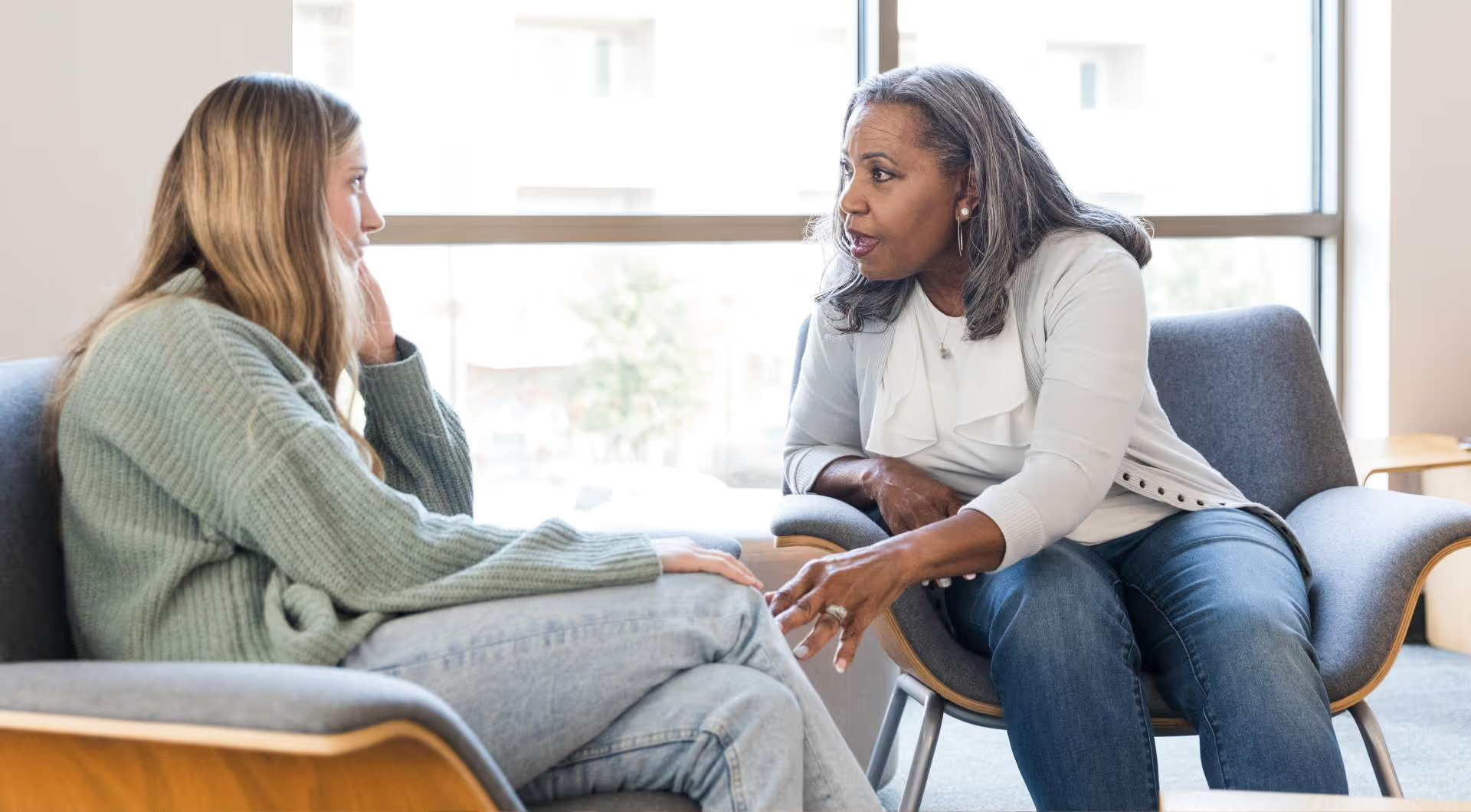Mending Bridges: 13 Crucial Steps To Rebuilding Trust After Addiction

Breaking through addiction is an amazing yet complex experience. You feel physically strong and comfortable in your body, but mental and emotional work must be done, too.
Gaining back the trust of family and friends is crucial to meaningful support, healing, and accountability. In the absence of trust, suspicion, accusations, and isolation can trigger relapse with feelings of shame and resentment.
That’s why recovery programs have comprehensive resources to not only get you to a state of sobriety but also to support you along the journey to a full recovery.
We’ll cover 13 ways to rebuild trust after addiction — because loved ones can trust you again, but it’s a reconnection that’s earned, not owed.
Table of Contents
- Is It Possible To Rebuild Trust After Addiction?
- 13 Steps To Rebuilding Trust After Addiction
- Get the Support You Need To Rebuild Trust After Addiction From the Compassionate Team at Dove Recovery
We’ve all lost trust from someone in our lives. Maybe you stole a toy as a child, lied to a friend, or broke a commitment at the last minute. The common thread is this: it is up to you to restore trust with self-reflection and subsequent actions.
After addiction, the trust of family and friends reinforces your recovery in a big way. This understanding can help you do the emotional, psychological, and practical work of rebuilding an often damaged self-image.
So, it’s not only possible to rebuild trust after addiction, it’s essential! Pursuing recovery with plenty of patience for yourself, consistency, and hope allows trust to be re-established over time.
#1: Acknowledge the Hurt
In addition to being lied to or, at times, stolen from, loved ones often feel neglected and in a constant state of mood swings when they’re close to someone in active addiction. They can feel like a failure as a parent, friend, or even as a child. It’s crucial to take ownership, be specific, and express genuine remorse to acknowledge your impact and heal the relationship.
#2: Stay Sober
Do everything you can to stay sober. With sobriety comes the clarity to remain responsible and honest. Without this, loved ones can’t feel safe because harmful behaviors can return.
To stay sober while rebuilding trust:
- Stick to a recovery plan (meetings, therapy, or other tools).
- Avoid triggers and risky situations with clear boundaries.
- Be honest when you’re having cravings or doubts.
- Stay focused on why you want to stay sober in the first place.
.avif)
#3: Take Personal Responsibility
Everyone has reasons for why they end up addicted, and therapy and counseling can help you work through that. When it comes to how you’ve hurt others, be accountable and avoid defensiveness. Justifying the behavior reveals a lack of insight and sincerity. Offer a genuine apology and commit to change to rebuild trust.
#4: Start Small
Show loved ones you’re willing to earn their trust in simple, yet powerful ways. This looks like being where you said you’d be (and on time!), sticking to schedules, and keeping promises — even if it's “I’ll call you later.” Telling the truth in everyday moments sets the tone for bigger truths later on, and if you forget something, own it right away. Accountability builds trust faster than perfection.
#5: Communicate Openly & Honestly
Ditch the pressure to be perfect while in recovery. Be real instead. Admit any slip-ups promptly, set boundaries when you feel weak, overwhelmed, or need space, and ask for support. Being transparent about your struggles sets a foundation for open and honest communication with loved ones.

#6: Set & Respect Boundaries
Boundaries help everyone feel emotionally and physically secure. They mitigate misunderstandings, stress, and relapse triggers. Maybe it’s skipping a party you know will serve alcohol, or waiting until you’re ready to discuss things more deeply with a loved one. Respecting boundaries is understanding and offering space and time for those who aren’t ready to jump back into the relationship.
#7: Be Patient
Just as you need time to heal from anger, grief, or trauma, so do your loved ones. Trust is rebuilt through steady, reliable actions over time. Know that it’s natural for others to be cautious and that they’re watching for patterns, not perfection. Repeated follow-through and patience demonstrate emotional maturity and allow relationships the time they need to be repaired.
#8: Keep Showing Up
It can be discouraging when relationships you once had seem different. Stay engaged! At first, you may not realize the reward. But the commitment and consistency to healing reinforce your own growth and make space for true reconciliation. Don’t take distance personally, celebrate small wins (like a short conversation or returned message), and focus on your recovery rather than the approval of others. Before you know it, that cracked door may be wide open.
#9: Display Humility
Substance use disorders often leave regret in their wake. It’s easy to blame the substance for your actions. Recognize this as the roadblock that it is. To rebuild trust with those you’ve hurt, take responsibility, admit you have a problem, and speak openly about the steps you’re taking toward positive change. A little humility goes a long way for loved ones working to overcome pain and resentment.

#10: Seek Outside Support
Recovery can feel like a battle — but outside support turns it into a shared journey. Therapy, counseling, and support groups help you feel less isolated and teach you healthy coping skills. They also open you to perspectives from others who understand, and encourage you to stay accountable.
Addiction counseling and therapy:
- Offer guidance and structure
- Reduce shame through connection
- Encourage you through setbacks
- Reinforce your commitment to recovery
#11: Demonstrate Reliability & Consistency
Rebuilding trust starts with your words, but it’s realized through your actions. Demonstrate your reliability and consistency by following a routine with habits like attending recovery meetings and going to work. If you say you’ll show up to a visit with your child, family dinner, or a meeting, show up. Steady behavior over time rebuilds trust more than words ever could.
.avif)
#12: Respect Healing Timeline
Respecting someone’s healing timeline means putting their needs above your desire to feel better. Focus on being present and accountable, not seeking comfort. When we’ve been hurt, we need space to forgive and reconnect without pressure or guilt trips. After all, emotional reactions throughout a healing process are natural and valid.
#13: Pursue Personal Growth
One of the most demonstrative ways to rebuild trust and credibility with loved ones is to create a stronger, more reliable you. Building healthy habits around exercise, sleep, and nutrition supports stability. Some other ideas are:
- Therapy and/or counseling to address underlying trauma, shame, or emotional patterns
- Journaling to better understand yourself and how you affect others
- Practicing emotional honesty by talking about your feelings
- Making amends to take responsibility for the past
- Setting goals to rebuild a meaningful life
Recovery is hard work and the stakes are high, because addiction is a family disease. Its effects are felt in every relationship, pursuit, and passion.
Rebuilding trust after addiction is like planting a garden after a storm. It’s time to clear the debris, plant new roots, and patiently wait for growth. Seeking help from professional counselors and therapists strengthens your support system in the quiet and uncertainty of new sobriety.
Dove Recovery specializes in addiction recovery treatment with customized plans for each client. Most insurance companies even cover all or a portion of the costs. This includes:
- Psychotherapy sessions
- Dual diagnosis therapy
- Relapse prevention techniques
- Counseling and therapy
- Inpatient programs
- Outpatient programs
- Partial hospitalization programs
Recovery is hard, but it doesn’t have to be lonely. Contact us today to begin or remain on your journey to a better life.
.avif)
